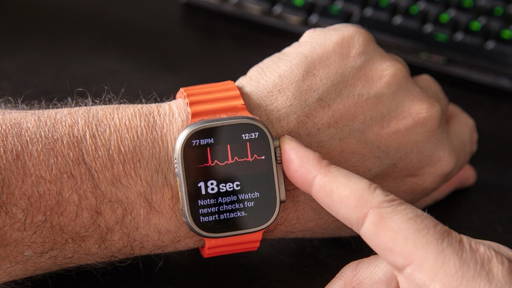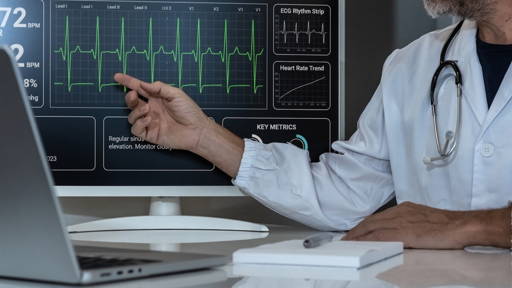Artificial intelligence is showing great promise in revolutionizing cardiac emergency care. A new international study demonstrates that an AI-driven electrocardiogram (ECG) system can more accurately detect severe heart attacks, particularly ST-segment elevation myocardial infarctions (STEMIs), while also drastically reducing false positives.
A STEMI is one of the most dangerous forms of heart attack, caused by a complete blockage of a major coronary artery. Rapid intervention is critical: if blood flow isn’t restored within 90 minutes, mortality risk triples. Yet in many hospitals, especially those without PCI (percutaneous coronary intervention) facilities, achieving this timeline remains a major challenge.
AI ECG model
The AI ECG model, nicknamed “Queen of Hearts”, was trained to identify both classic and atypical patterns of acute coronary occlusion. In a large-scale, real-world analysis involving 1,032 patients at three European PCI centers (2020–2024), the system significantly outperformed traditional triage methods.
Of the 601 confirmed STEMI cases, the AI correctly identified 553, compared to only 427 detected by standard ECG assessment. Just as importantly, the AI reduced false positives from 41.8% to 7.9%, a fivefold improvement.
“AI-driven ECG interpretation can bring the best of both worlds. Detecting true heart attacks early while minimizing unnecessary activations,” said Dr. Robert Herman, lead author and cardiovascular researcher at AZORG Hospital in Aalst, Belgium. “Improving the accuracy of triage at the first point of contact streamlines emergency care and ensures that patients who truly need intervention receive it without delay.”
Oprational benefits
Senior author Dr. Timothy D. Henry, from The Christ Hospital in Cincinnati, highlighted the potential impact: “AI-enhanced diagnosis at first medical contact could shorten time to treatment and optimize transfers from non-PCI centers, ensuring timely, appropriate care.” Beyond its clinical performance, the technology could have major operational benefits, reducing fatigue among on-call cardiology teams and limiting costly false emergency activations.
However, experts caution that AI should complement, not replace, human expertise. In an accompanying editorial, Dr. Mohamad Alkhouli of the Mayo Clinic commended the achievement but stressed that further prospective validation across diverse populations is needed. “The true challenge isn’t accuracy alone,” he noted, “but readiness, to safely integrate AI into fast-paced, high-stakes medical decision-making.”
The findings mark a major step toward AI-supported emergency cardiology, where data-driven precision can enhance both speed and safety in life-saving interventions. The study was recently published in JACC: Cardiovascular Interventions and presented at TCT 2025 in San Francisco.







